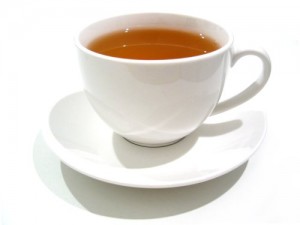A new study just published today in the British Medical Journal has found a link between drinking hot tea and oesophageal cancer among people in Northern Iran.
 Patterns of tea consumption were measured, along with the temperature at which the tea was drunk, among healthy participants. Results showed that compared with drinking lukewarm tea, drinking hot tea, or very hot tea, was strongly associated with an increased risk of oesophageal cancer.
Patterns of tea consumption were measured, along with the temperature at which the tea was drunk, among healthy participants. Results showed that compared with drinking lukewarm tea, drinking hot tea, or very hot tea, was strongly associated with an increased risk of oesophageal cancer.
Sarah Perry, Health Promotion Advisor at the Cancer Society of New Zealand, comments: “As with all research which is done in a specific community, it does not necessarily always translate to other communities. This study, which links oesophageal cancer with the temperature of a cup of tea, was undertaken in Iran where is it is common for people to drink their tea scalding hot. In New Zealand we are more likely to add milk, but the recommendation to allow food and drink to cool before consuming it is well advised.”
Oliver Childs, Cancer Research UK’s Senior Science Information Officer, said:
“Tea drinking is part of many cultures, and these results certainly don’t point to tea itself being the problem. But they do provide more evidence that a regular habit of eating and drinking very hot foods and drinks could increase your risk of developing cancer of the oesophagus (food pipe). People in this region of northern Iran often drink very hot tea as part of their daily routine. We’re a nation of tea lovers in the UK, but we don’t tend to drink tea at such high temperatures and we usually add milk, which cools it down. The most important risk factors for oesophageal cancer are smoking and drinking alcohol. So to reduce your risk give up smoking, limit alcohol and eat plenty of fruit and vegetables to help keep a healthy bodyweight.”
In an accompanying editorial, David Whiteman, a principal research fellow from Queensland Institute of Medical Research comments, “It is difficult to imagine any adverse consequences of waiting at least four minutes before drinking a cup of freshly boiled tea, or more generally allowing foods and beverages to cool from ‘scalding’ to ‘tolerable’ before swallowing. These findings are not cause for alarm however, and they should not reduce public enthusiasm for the time honoured ritual of drinking tea.”
Professor Ian Olver is the CEO of Cancer Council Australia:
“This is a large study which adds to previous literature which suggests that drinking hot liquids is associated with an increased incidence of oesophageal cancer. In studying tea drinkers, it was found that it was not the amount of tea drunk, but the temperature at which it was drunk that was important. The initial case control study relied on self reporting, but a prospective cohort study actually measured the temperature of the tea. It is postulated that thermal damage to the oesophageal lining may trigger cancer. On the basis of this research, it is prudent to let hot drinks cool to a tolerable heat before swallowing.”
For a copy of the paper, log in to the resource section of this website.